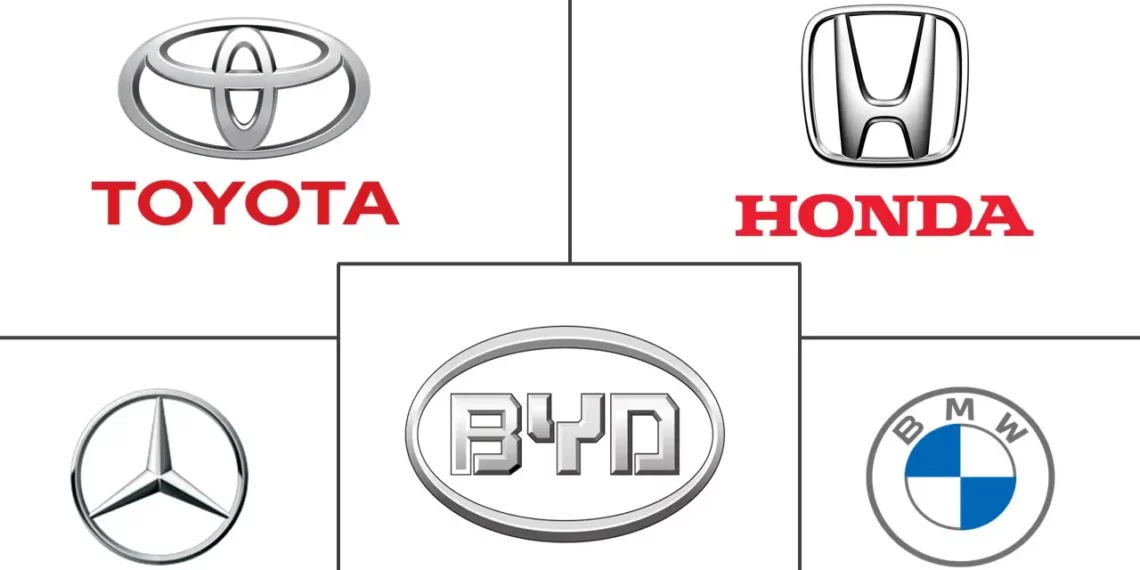No products in the basket.
Thailand is set to provide investment incentives to hybrid vehicle manufacturers by reducing excise taxes from 2028 to 2032, aiming to draw in 50 billion baht of investments and bolster local component production.
Thailand’s strategic position in Southeast Asia makes it an attractive destination for manufacturers looking to invest in hybrid vehicle production.
Key Takeaways
- Thailand is introducing investment incentives for manufacturers of hybrid vehicles, including lowered excise taxes from 2028 to 2032, to promote the production of hybrid models.
- Recent investments from Chinese electric vehicle makers in Thailand have led to the government actively offering incentives to attract more firms to the country.
- The Board of Investment expects the measures to draw in 50 billion baht worth of investments and aims to preserve auto parts manufacturing by supporting hybrid vehicle production.
With robust infrastructure, a skilled workforce, and favorable government policies, the country is poised to become a hub for the rapidly growing automotive sector. The Thai government has implemented several fiscal incentives aimed at promoting hybrid vehicle technologies, making it easier for companies to establish production facilities and undertake research and development initiatives.
- 🌍 Global Hybrid Vehicle Manufacturers: Leading global hybrid vehicle manufacturers include Audi AG, Renault Group, Kia Corporation, Nissan Motor Corporation, and Hyundai Motor Company. These companies are making significant contributions to the hybrid vehicle market.
- 🔋 Best Hybrid Cars for Sale 2024: In 2024, some of the best hybrid cars available for sale include models like Lexus NX, Toyota Corolla, Kia Sportage, Hyundai Tucson, and Toyota RAV4. These vehicles offer a combination of fuel efficiency and environmental friendliness.
One of the key incentives available to manufacturers is the Board of Investment (BOI) promotion scheme, which offers tax holidays, reduced import duties on machinery, and investment grants. Through this program, companies can enjoy significant cost savings in their initial setup and operational expenses. Additionally, the government has introduced measures to support the development of electric vehicle charging stations and supply chains for hybrid vehicle components, enhancing the ecosystem further. These supportive policies create a unique opportunity for foreign and local investors to collaborate and develop innovative hybrid vehicle solutions.
Thailand’s commitment to environmental sustainability has also influenced its automotive policies. The government aims to reduce carbon emissions and promote energy-efficient vehicles as part of its long-term environmental goals. By investing in hybrid vehicle production, manufacturers not only align themselves with global sustainability trends but also contribute to local efforts to combat climate change. This alignment presents a compelling value proposition for companies seeking to enhance their corporate social responsibility initiatives while capitalizing on a growing market.
Thailand’s strategic position in Southeast Asia makes it an attractive destination for manufacturers looking to invest in hybrid vehicle production. The country’s well-developed infrastructure, skilled workforce, and government incentives for eco-friendly initiatives make it an ideal location for companies seeking to establish or expand their hybrid vehicle manufacturing operations. Additionally, Thailand’s proximity to key markets in the region provides easy access to both suppliers and consumers, further enhancing its appeal as a hub for hybrid vehicle production. As the demand for environmentally sustainable transportation options continues to grow, Thailand’s strategic advantages position it as a key player in the global hybrid vehicle manufacturing industry.
Discover more from Thailand Business News
Subscribe to get the latest posts sent to your email.














